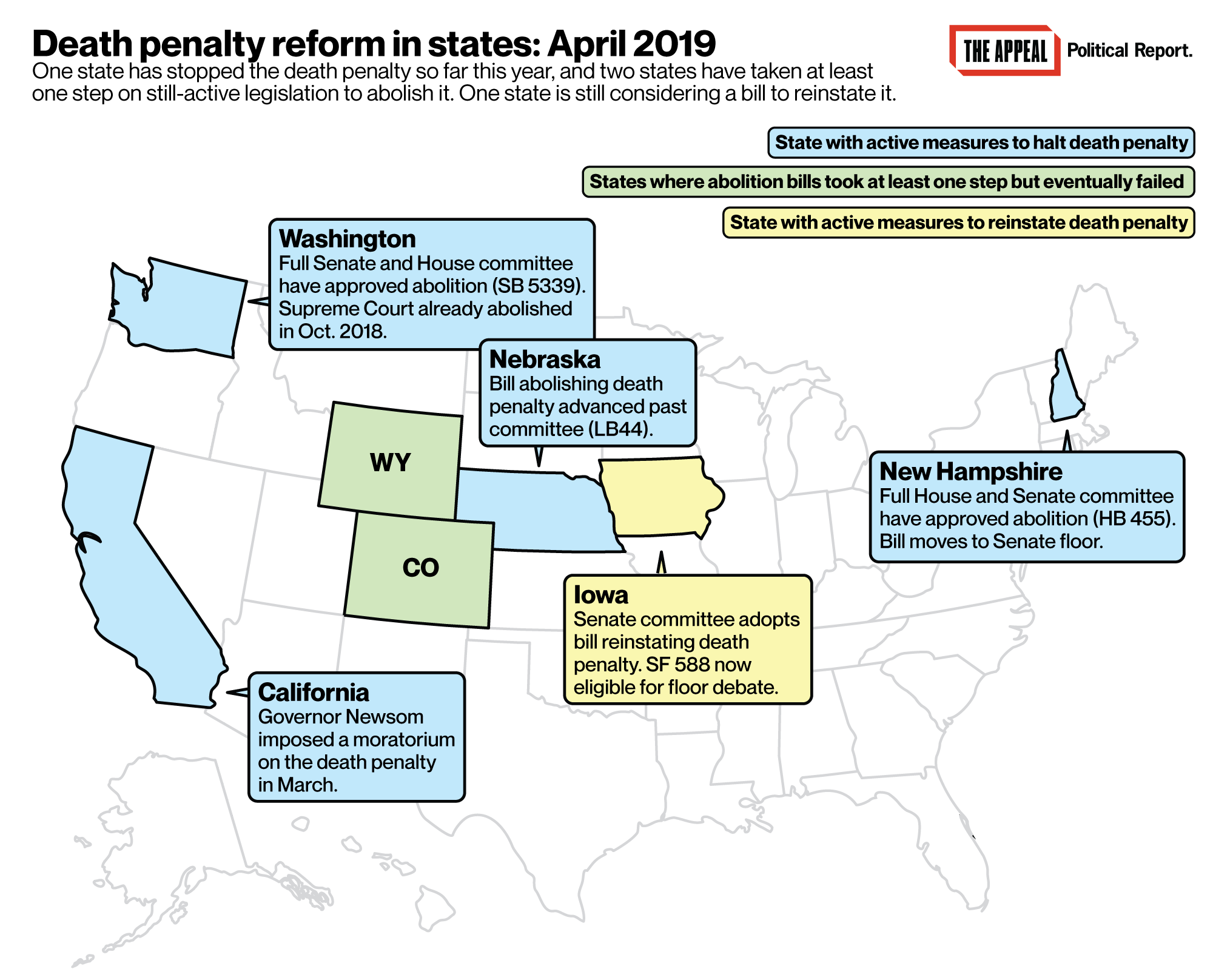Political Report
New York Lawmakers Overhaul Pretrial Rules but Reforms Falter Elsewhere
The New York legislature overhauled discovery and bail, adopting a budget deal that contains reforms that state organizers have long worked toward.
Legislative roundup, April 4 edition: New York legislature overhauls discovery and bail, Colorado won’t abolish the death penalty, New Mexico and Washington won’t expand rights restoration
Find out more on our legislative roundup page.
The New York legislature adopted a budget deal that contains reforms that state organizers have long worked toward. Here are some of its provisions:
Discovery rules: Right now, prosecutors can withhold files from the defense until the trial, not even providing them before defendants take a plea deal. The new rules require that they provide information (such as grand jury testimonies or visual reproductions) within 15 days of arraignment.
Bail reform: The new law ends the use of cash bail for misdemeanors and some felonies, and provides new mechanisms for release on nonmonetary conditions. According to Governor Andrew Cuomo, “90 percent of the people who are charged will remain out of jail” after implementation. Unlike earlier proposals, the bill keeps cash bail for higher-level offenses. This falls short of many advocates’ demand that pretrial release not be tied to one’s ability to make a financial payment. The Gotham Gazette describes how this compromise took shape.
Immigration: Another reform folded into the budget is the One Day to Protect New Yorkers Act, which will shield noncitizens convicted of some class A misdemeanors from deportation by cutting the maximum jail sentence by one day (from 365 to 364 days). Colorado and Utah adopted this same reform last week.
Cuomo is expected to sign the budget.
—
Arizona and New Mexico: “Ban the Box”
New Mexico Governor Michelle Lujan Grisham has signed into law a “Ban the Box” bill that bars private employers from asking job applicants about prior arrests or convictions on an initial application. However, employers can still take that past into account at later stages.
A similar bill died in Arizona. The Senate passed it in March, but Republican Representative John Allen refused to take it up in the committee he leads. “I don’t know if we have the legal ability to go into a private company and tell them what they can’t look at,” he said. Allen sank others reform bills earlier in the legislative session.
—
Colorado, Nebraska, New Hampshire, and Washington: Death penalty
Colorado’s bill abolishing the death penalty failed. It lacked sufficient support in the Senate, where Democrats gained a two-seat majority in the 2018 elections. One Democrat who opposes abolition is Senator Rhonda Fields, whose son was murdered by two people now on death row; the bill’s sponsors did not answer my questions as to which other senators opposed abolition.

Death penalty abolition is still in motion in New Hampshire and Washington. In both, legislation cleared a committee this week after already being adopted by the other chamber last month. In addition, abolition has moved past the committee stage in Nebraska.
—
New Mexico and Washington: Voting rights
Legislation to restrict felony disenfranchisement in New Mexico (House Bill 57) died in March. The legislation as initially introduced proposed abolishing disenfranchisement; it was then amended to only cover individuals once they are released from prison. But Democratic leaders did not bring that compromise bill to a vote by the session’s deadline.
Similar legislation to enfranchise people once they are released from prison also died in Washington, another Democratic-run state, where the Senate Rules Committee did not advance it.
—
North Carolina: Medicaid expansion
Pastors from the North Carolina Council of Churches and other advocates rallied in Raleigh to demand that the state expand Medicaid. They framed this reform as crucial to fighting the opioid crisis by enabling people with substance use disorder to receive treatment and to shift away from a carceral and law enforcement response to addiction. (The Political Report has written before on how Medicaid advocates connect the dots between access to care, addiction, and incarceration.) The GOP-run legislature has opposed Medicaid expansion. It is now mulling a more punitive response to opioids via House Bill 212, which would significantly increase the length of incarceration for people who break into a pharmacy.
